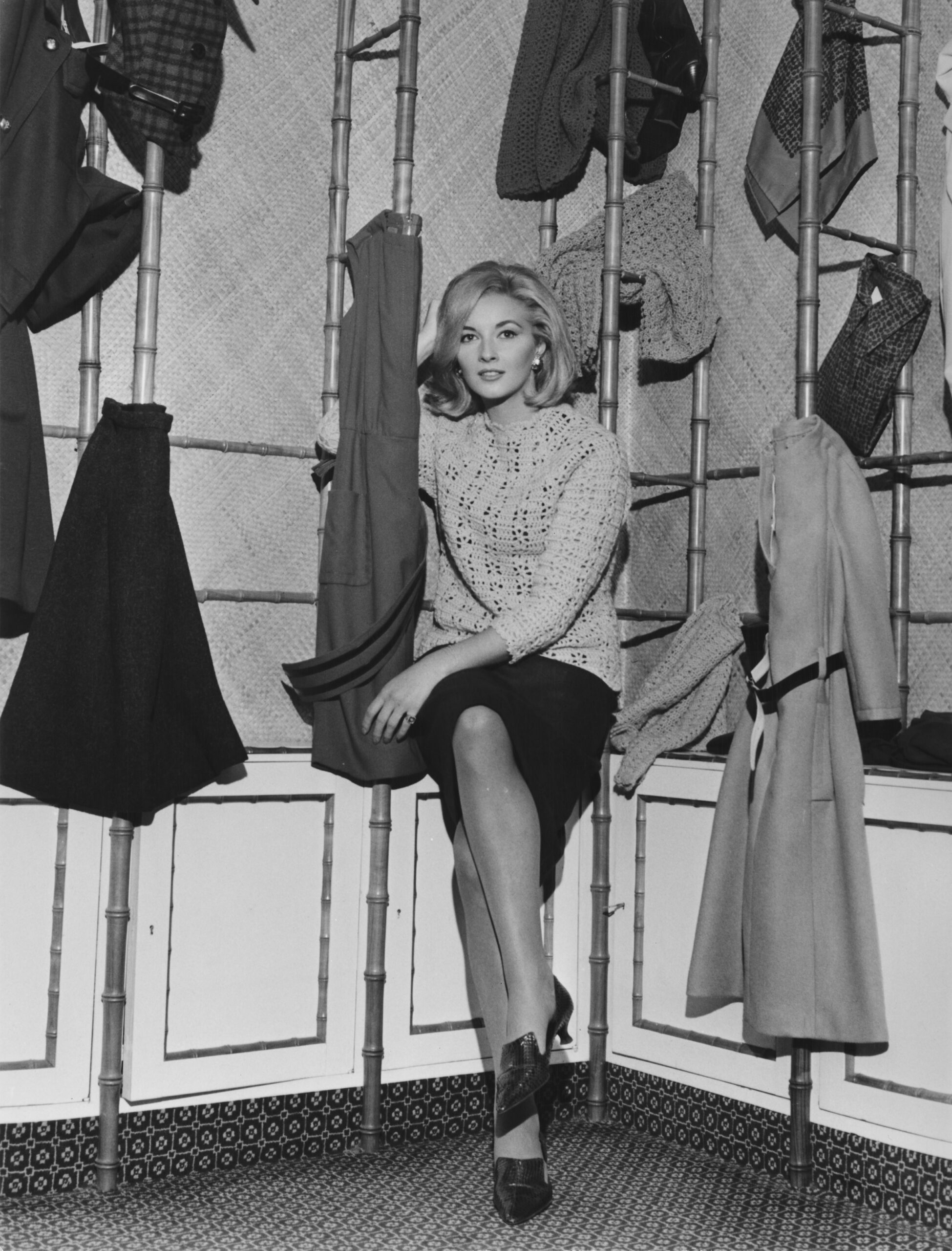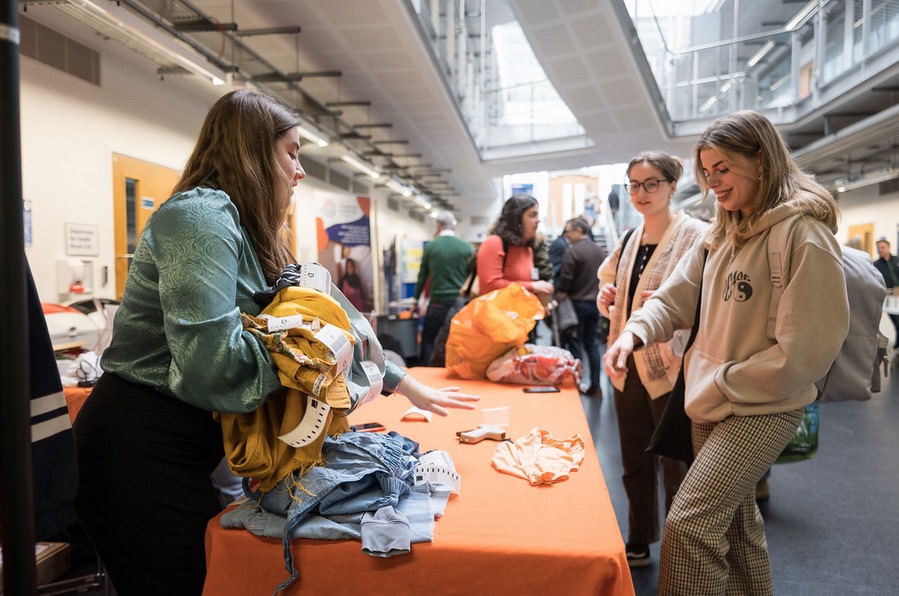
Writer Genie Harrison asks the experts.
Photo by Keystone Features/Hulton Archive/Getty Images

Have you ever justified buying yet another piece of clothing by telling yourself you’ll donate something else? You’re not alone. But how sustainable are the fast-fashion alternatives many of us have turned to in recent years — from buying and selling on online platforms to donating to local charity and thrift shops?
For many young consumers today, the humanitarian and environmental impacts of fast fashion have become hard to ignore: Business Insider reports that in 2023, 65% of Gen Z shoppers aim to shop more sustainably and invest in higher-quality clothing. As a result, lots are turning away from fast fashion in favour of its more responsible counterpart, slow fashion — whether through online secondhand platforms, ethical brand investments, or passing along “pre-loved” pieces onto the next taker.
But by relieving ourselves of last season’s garments, are we part of the problem? For Roxy Travers, founder of sustainable clothing collective F#!% Fast Fashion, the answer is undoubtedly yes. In 2019, Roxy learnt that “only 6% of all clothes donated to charity shops actually make their way to the hands of another owner”. The remaining 94% – an equivalent of 15 million garments per week – are instead exported to the global south.
“40% of these clothes just go straight to landfill,” Roxy tells Wonderland. “We’re essentially forcing these countries to pay for our waste – and the charity shops themselves exist only to make as much money as possible for their own businesses.”
Learning about the UK’s inordinate donations to landfill and the severity of clothing poverty – where one doesn’t access to clothes needed for daily life — Roxy, a recent politics graduate then, decided to start F#!% Fast Fashion: a space for visitors to swap clothes in exchange for coupons, that they can then trade for other pre-loved clothes.
What began as a twice-monthly clothing swap event in London has evolved into a permanent store in Dalston, a location chosen for its appeal to both a fashion-forward, sustainability-minded younger generation and its vibrant community atmosphere. The initiative aims to deliver the same dopamine rush and boutique shopping experience that fast fashion offers, all while keeping items in active use within and beyond the community. In its first year alone, Roxy’s store saved an impressive 51.1 tons of carbon and generated £183,450 in value.
If you’re familiar with secondhand shopping, chances are you’ve heard of Depop. Founded in 2011, the social e-commerce platform quickly became a go-to for buying and selling vintage and secondhand clothes, attracting an impressive 21 million users in its first decade. But the tides have turned, and users are increasingly sensing a “gentrification” of the once-affordable marketplace. “I feel like Depop has a markup because it’s full of official sellers now,” shared Hannah, 26. “I don’t even have the app on my phone anymore.”
With some sellers reportedly marking up items for more than triple their original price, Depop now faces criticism for transforming what was once a sustainable haven into a minefield of overpriced, over-hyped vintage finds. In response, many sellers, particularly in the UK, have turned to Vinted — a Lithuania-based platform gaining popularity on account of its fairer pricing and reduced sense of perceived hierarchy among sellers. Vinted seems to offer a refreshingly democratic space for buying and selling secondhand clothes, addressing some concerns about Depop’s perceived “gentrification.”

Courtesy of Dopplle.

But not only tech giants are in charge of change. Also looking to provide a solution to the problems of current sustainable services are sisters Izzie and Sam Hurst, who founded Dopplle, back in 2019, an app that allows users to leave money aside and go back to bartering days, by swaping clothes.
“We already shopped second hand, […] but we wanted to find a way to encourage not just ourselves [to change], but also those around us,” says Izzie, recalling the moment she and Sam felt compelled to change their approach to fashion after starting uni. This spark — along with the sudden absence of each other’s wardrobes — led to an idea: hosting casual clothing swap events where like-minded people could refresh their style without feeding into fast fashion.
Thanks to university funding and the Santander Brighter Future Grant, Dopplle evolved into a fully developed app and now stands as one of the leading platforms for clothes swapping today. And beyond her app’s success, Izzie is now setting her sights on disrupting the retail industry at large — recently, she took the stage alongside titans like Coach and Patagonia at a prominent e-commerce event, where she challenged the industry to rethink its traditional processes.
Reflecting on the landscape of clothing swaps, Izzie admits it remains “a really hard section of the pre-loved industry,” one that “isn’t growing as some had hoped.” Yet, she’s quick to note a promising shift, with clothing swap shops like F#!% Fast Fashion popping up nationwide, offering fresh alternatives to the fast-fashion cycle.
“I would love for [clothes swapping] to be something that’s considered a normal thing for people [to do], whether they go to university or move to a new area, to start looking at how they can start to swap items.” Her vision goes beyond just clothing, too, pointing to platforms like Facebook Marketplace as leaders in the second-hand furniture space. We sure are here for it.



